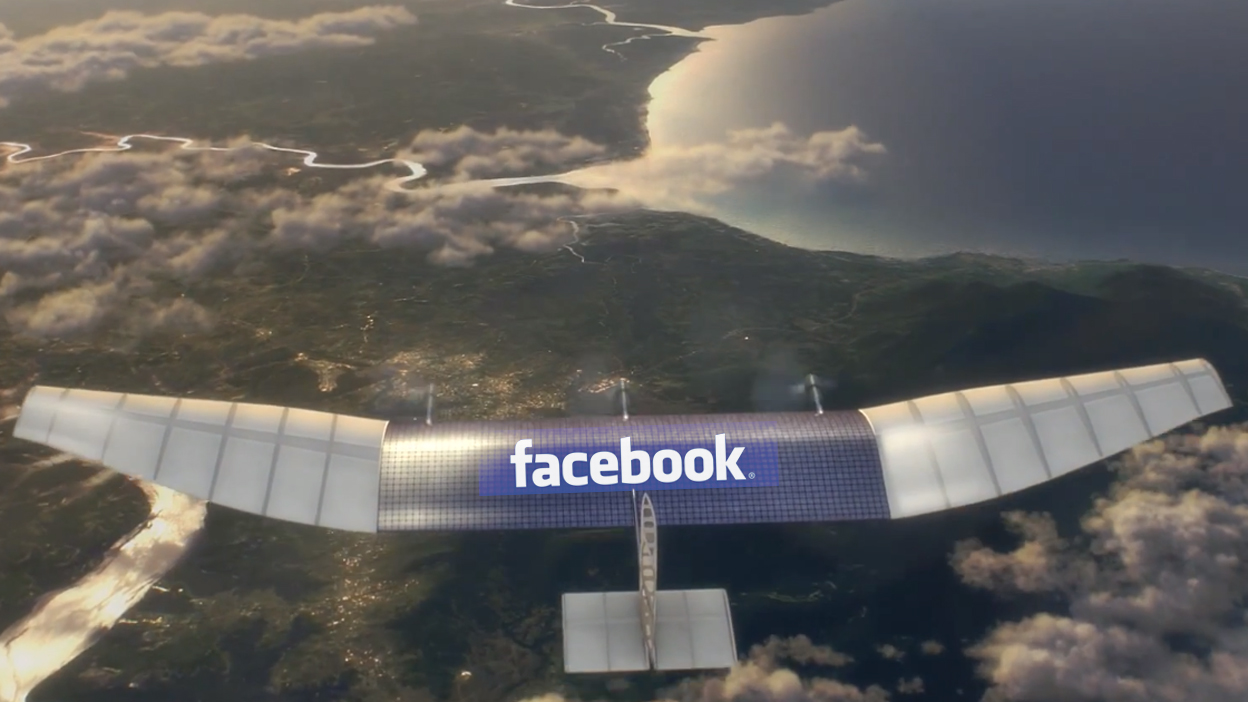Facebook is building drones armed to the teeth with the internet
Facebook Connectivity Lab also working on satellites and lasers

While everyone's distracted by looking through virtual reality goggles like Oculus Rift, Facebook is preparing to fly drones overhead to beam the internet to new places.
This airborne Internet.org mission is being carried out by the Facebook Connectivity Lab, which has been tasked with building drones, satellites and lasers.
Its goal is to deliver "affordable access to basic internet services available to every person in the world," wrote Facebook CEO Mark Zuckerberg in a status update.
There's certainly a need. Less than three billion people are able to access the internet among a population of 7.1 billion.
Penetration is low in developing countries without infrastructure and government censorship often stymies free and open access. Turkey is just the latest case this month.
Conventional methods aren't enough
Facebook and Internet.org have been able to connect more than three million new people to the internet in the past year through conventional methods.
Countries like the Philippines and Paraguay have seen double the number of mobile data users thanks to the Internet.org's partnerships with operators, reported Zuckerberg.
Get daily insight, inspiration and deals in your inbox
Sign up for breaking news, reviews, opinion, top tech deals, and more.
That's a start, but beaming the internet to the entire world requires inventing new technology and experts.
That's why Facebook is bringing experts from NASA's Jet Propulsion Lab and Ames Research Center onboard as well as key members of the UK-based Ascenta to its Connectivity Lab.
Ascenta is known for being involved in its early stages Zephyr, a UAV technology that went on to become the world's longest flying solar-powered unmanned aircraft.
This fits right into the scope of Internet.org's plains, which call for internet delivery at 60,000 feet in the air with planes that are powered by the sun.
- Check out the latest and greatest Android phone: HTC One M8
